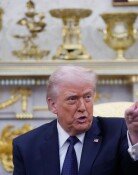Foreign Builder Cited for Tax Evasion
Foreign Builder Cited for Tax Evasion
Posted December. 22, 2005 03:02,
The Seoul City government will impose a 16 billion won tax on the Government of Singapore Investment Corporation (GIC), the builder of a mega-building complex in Korea.
According to the Seoul City government and the real estate industry, Seoul City confirmed on December 21 that the GIC did not pay acquisition taxes when it purchased the Star Tower building in Yeoksam-dong, Gangnam-gu for 930 billion won at the end of last year.
The city government will try to collect the acquisition taxes as well as additional taxes.
The government already investigated the GIC in October and November and will notify the GIC of the total amount of the tax penalty that is being imposed. The amount will be the sum of acquisition tax (two percent), an additional tax (20 percent of the acquisition tax) for failing to report its transaction within 30 days, and another additional tax for failing to pay dues (3/10,000 of the acquisition tax) on 590 billion won, the purchase price of the building on the books. A city official said, "If the GIC does not file for an objection, it will pay its dues next month."
The GIC purchased the Star Tower building from Lone Star, a U.S. investment company, in a stock takeover in December 2004. It evaded taxes by abusing the law which stipulates that if the subject of trade is not real estate property but stocks, then one is not subject to acquisition and registration taxes.
Moreover, the GIC is suspected of using two of its subsidiaries to take over 50.01 percent and 49.99 percent of Lone Star`s stake in the building, respectively, to avoid the tax by using the provincial tax law which stipulates an acquisition tax must be levied on the shareholder who owns 51 percent of a company or more.
Seoul City decided that since the two subsidiaries have a special relationship with each other and GIC exercises ownership of the building, the GIC is liable for the acquisition taxes and additional taxes on the property.
It is being reported that the GIC has agreed with the decision.
The Seoul City government suspects that most of the foreign investment companies that acquired large tracts of real estate in Korea after the liberalization of the property market in 1998 used the same method to evade taxes, and is conducting tax probes on other companies as well.
After the financial crisis, the number of large buildings over 1,000 pyeong in area bought by foreign nationals reached 16.
Jae-Seong Hwang Tae-Hun Hwang jsonhng@donga.com beetlez@donga.com







